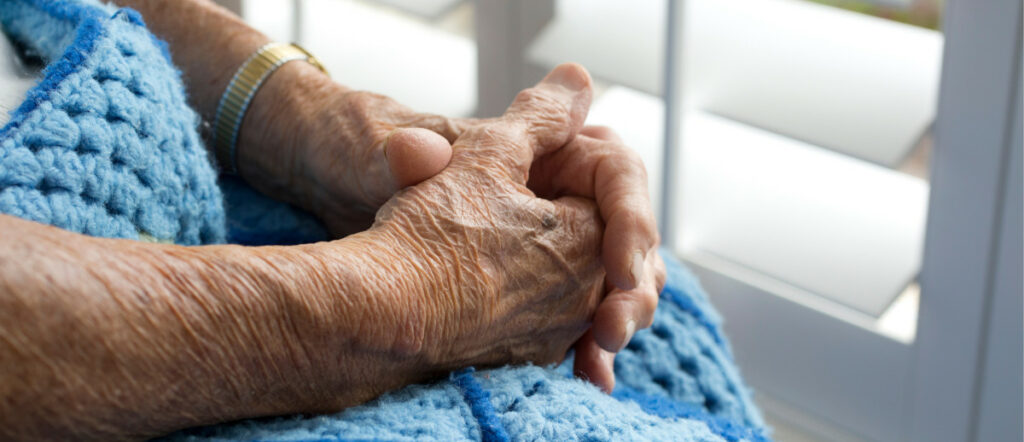Our response to the End of Life Choice Act

This position statement has had deep and wide reflection from our organisation including staff, volunteers and the Board. Te Pou Tautoko, the Māori guidance group (including mana whenua representation), as well as members of our Pacific Advisory Group, have had input.
Our position
Mary Potter Hospice provides compassionate and non-judgemental care to all of our patients. While we do not provide assisted dying services, we do support patients with their palliative care needs, whether they choose assisted dying or not. We walk alongside our patients and their whānau whatever decision they make regarding assisted dying. We provide our holistic palliative care to our patients wherever they are – at home, in the hospice inpatient unit or in residential care.
We keep the patient’s needs central to whatever we do. We support their whānau with our bereavement care and counselling. Mary Potter Hospice provides palliative care. The World Health Organisation definition states that palliative care intends neither to hasten nor postpone death. Mary Potter Hospice believes this is core to palliative care.
Assisted dying is a different service from palliative care. Mary Potter Hospice refers patients who want to consider assisted dying to the Support and Consultation for End of Life in New Zealand (SCENZ) group. This is the official group who have expertise in assisted dying.
Patients still have full access to Mary Potter Hospice services if they choose to be referred to the SCENZ group. It means patients wanting both palliative care and assisted dying can receive both. It also means those fearful of assisted dying, can be reassured that our staff are not involved in this, and that assisted dying will not occur on our inpatient unit.
Context
Assisted dying is now legal in New Zealand. The introduction of assisted dying means that a person with a terminal illness who meets the eligibility criteria can request medication to end their life. The Act sets out the legal framework for accessing assisted dying, eligibility criteria. The Ministry of Health is responsible for the Act.
Translations
Questions and answers
What happens if I am a patient of Mary Potter Hospice and choose assisted dying?
We will continue to care for you whether you choose to have assisted dying or not. Our service will be the same for you as for any other patient. The only exception to this is that assisted dying won’t take place in our premises or while our staff are present.
Why won’t Mary Potter Hospice undertake assisted dying?
The World Health Organisation definition of palliative care includes that we will not hasten or postpone death. Mary Potter Hospice believes this is core to palliative care.
Our ethos is to help patients to live well until they die. We are also aware that many patients are nervous of accessing palliative care services, as they are worried we will shorten their lives. Even before this Act was legalised we needed to reassure patients that we did not do this. Keeping the assisted dying service separate from the Mary Potter Hospice palliative care means everyone can feel safe accessing our service.
The Hospice has whakapapa to the Little Company of Mary. The constitution of that organisation does not include assisted dying. We will ensure we are keeping our values of Mana/Respect, Aroha/Compassion, Rangatiratanga/Dignity, Manaakitanga/Hospitality, Kaitiakitanga/Stewardship central to decisions we make.
Will Mary Potter Hospice talk to patients about assisted dying?
By law, no staff or volunteers can bring up the subject of assisted dying with patients, any requests must come from the patient themselves.
If staff receive a request for assisted dying then they will be expected to respond within their training level and role requirements. The request will be discussed with the Hospice team to ensure that there are no issues such as distress or uncontrolled symptoms that can be addressed to the patient’s satisfaction.
The conversations with patients must be culturally safe and Hospice Māori or Pacific Liaison or professional interpreters may be needed. If the patient does want to discuss assisted dying with us, we can explore this with them and will refer them on to the SCENZ group if they want us to. We will keep supporting them whether they want assisted dying or not.
How will we work with The Support and Consultation for End of Life in New Zealand (SCENZ) team?
We will continue to provide palliative care support to the patient and whānau. We will maintain good and functional relationships with the SCENZ team. We can release information to them, as we can other health care providers, as this is part of our Consent to Service. If there is doubt, we will check in with the patient about their wishes.
It is the SCENZ team’s responsibility to undertake assessments and decide if a patient is eligible for assisted dying or not, we do not undertake these assessments.
If you have any concerns or worries at all, please tell your Mary Potter Hospice contact person.
What is the difference between choosing not to have treatment and choosing assisted dying?
It is normal for Mary Potter Hospice to have conversations with patients about what treatments they want and which they do not want to have. Some patients may choose to stop a treatment that could be keeping them alive and therefore allow a natural death. This is different from assisted dying. Assisted dying is where you ask a doctor to give you a medication which causes you to die. Mary Potter Hospice is not involved in assisted dying.
Where can I get more information about assisted dying?
Find more information on the Ministry of Health’s website.
